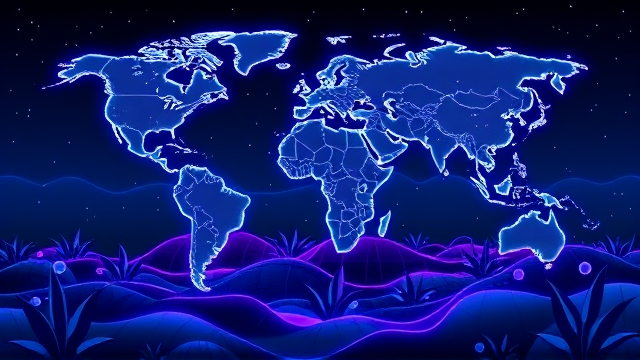G20's Role in Ending Global Hunger
The persistent specter of global hunger, a crisis of both moral failing and systemic collapse, continues to mock the grandiloquent pledges made within the sanitized halls of G20 summits. For years, this consortium of the world's most powerful economies has issued declarations and communiqués vowing to eradicate food insecurity, yet the translation of these paper promises into tangible, soil-level change has been agonizingly slow, a disconnect as vast as the monoculture farms that scar our landscapes.The data, as stark and unyielding as a drought-stricken field, tells a grim story: despite producing enough food to feed every human on the planet, nearly 800 million people still go to bed hungry, their plight a direct consequence of a broken global food system that prioritizes commodity trading over community nourishment, export-led agribusiness over local resilience. South Africa’s current presidency, however, represents a critical inflection point, a moment to pivot from hollow rhetoric to a genuine, earth-conscious strategy that champions proven, agro-ecological solutions.This isn't merely about increasing calorie output; it's about fundamentally rewiring our relationship with the land, moving away from the extractive, fossil-fuel-dependent industrial agriculture that has degraded an estimated 33% of the world's topsoil and contributed significantly to biodiversity loss. The real opportunity lies in rallying international support for strengthening local food systems—those intricate webs of smallholder farmers, regional markets, and indigenous knowledge that are inherently more adaptable to climate shocks and far less vulnerable to the speculative whims of global commodity markets.We've seen the success stories, documented in the quiet revolutions of permaculture projects in Kenya and community-supported agriculture networks in Brazil, where crop diversity replaces chemical dependence and food sovereignty becomes the bedrock of sustainable livelihoods. The G20 must now channel its formidable financial and political capital into scaling these models, investing in soil regeneration, water harvesting techniques, and fair supply chains that ensure the people who grow our food can actually afford to eat.The alternative is a future where hunger is not an anomaly but a permanent feature of our geopolitical landscape, fueling instability, migration, and conflict. The time for performative diplomacy is over; the G20's legacy will be judged not by the eloquence of its statements, but by the health of the ecosystems and the fullness of the plates in the world's most vulnerable communities.
Latest News
In a seismic political maneuver that has sent shockwaves through the corridors of European power, French Prime Minister Gabriel Attal has formally proposed the
43 minutes ago0 comments
On a day that should have been defined by the simple peace of a coffee break, a teenager known only as ‘Arda K’ waded into an open-air cafe in Eskisehir,
51 minutes ago0 comments
The impending Pentagon defense strategy report, a document anticipated with profound gravity within global diplomatic and military circles, signals a tectonic
59 minutes ago0 comments
In a development that recalls the careful diplomatic positioning of historical statecraft, Prime Minister Keir Starmer has publicly acknowledged the
1 hour ago0 comments
The viral hot-mic moment in which Indonesian President Prabowo Subianto was heard asking US President Donald Trump if he could meet his son Eric shortly after
2 hours ago1 comments
In a strategic maneuver that reads like a contingency plan ripped from a geopolitical risk assessment, China is reportedly training its soldiers to function as
2 hours ago0 comments
The exclusion of women from a Muslim charity run in London’s Victoria Park, organized by the East London Mosque and London Muslim Centre, has ignited a
3 hours ago0 comments
In a political maneuver that felt more like a campaign rally than a parliamentary statement, Keir Starmer took to the Commons floor today with a declaration
3 hours ago1 comments
It’s quiet here...Start the conversation by leaving the first comment.
